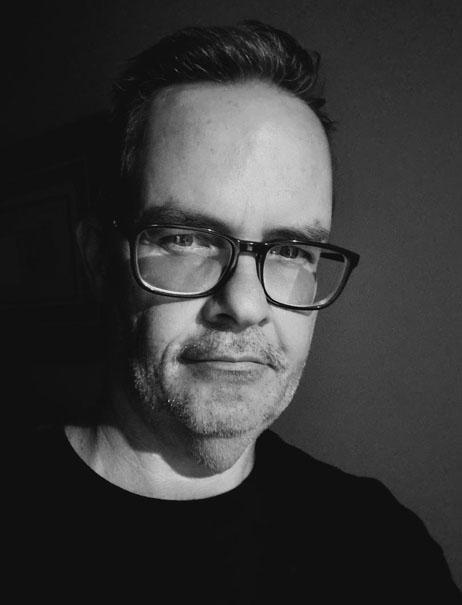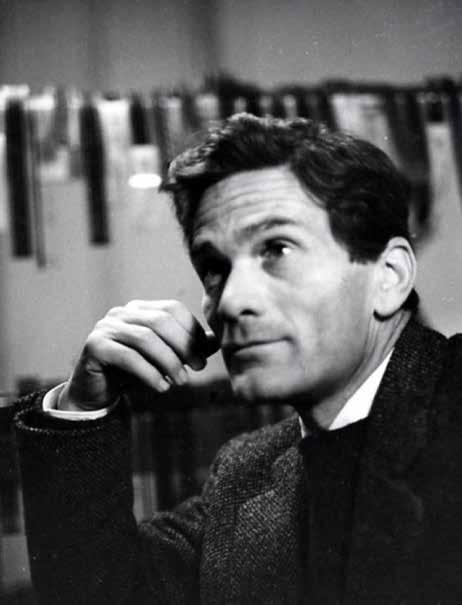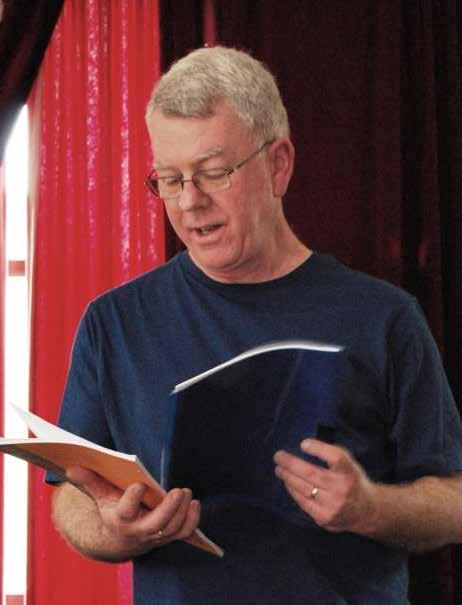
15 minute read
The Covenant
God-things reached down & took the water. It rose, abject. The People were shocked at this weak surrender. Where did it end up?
Maybe it just sat in the sky & watched the arguments that arise from thirst. Or perhaps there is some new lake plotting life in an unpeopled region.
Advertisement
After all the hankering the god-things gave them fire which rippled & flowed just like their river. They were not satisfied, this wild appetite outran their own.
Certain it was not their fault they face the future armed only with incendiaries. Pray, that’s what you do when you can’t do nothing.
Lincoln Jaques is a Tāmaki Makaurau (Auckland) based writer. His poetry, fiction and travel essays have appeared internationally in collections, journals and anthologies. He was the runner-up in the International Writers Workshop (IWW) Kathleen Grattan Prize for a sequence of poems, and was recently shortlisted for the inaugural At The Bay | I Te Kokoru awards for a hybrid full-length collection of essays.
The Fight Against Everything: Pier Paolo Pasolini and Bologna
In the early morning of 2 November 1975, in the seaside town of Ostia, near Rome, a woman discovered the gruesome remains of a man who had been brutally murdered. There was evidence of torture: the victim had been beaten, then run over by a car (later it was revealed his own car). Several times. His genitals had been mangled by a heavy object. After all this, it seems someone had poured gasoline over him and set him alight. The body was that of the controversial Bologna-born writer, poet, political activist and film director, Pier Paolo Pasolini.
A brief history of Bologna: Bologna is a mid-size city that sits between Florence and Venice, dab smack in the heartland of Northern Italy, capital of the Emilia-Romagna region. Once an Etruscan stronghold, later the Romans came, then they were thrown out by the Goths. Then the Lombards outdid the Goths, who were eventually ousted by Charlemagne, only to be ruled for a time by the Carolingian empire. From the 1200s a series of powerful families fought for power, building tall towers—two of the most famous still seen today leaning dangerously—to try to better the other. The plague came in 1348, desecrating the population. For a brief time Napoleon seized the town, placing it under French rule. The Pope claimed Bologna back, until Mussolini instilled fascist power after WWI. The Germans came in 1944 and bombed almost the entire city. After the war, the Italian Communist Party (PCI) held control. If I were penning a glossy tourist guide, I would probably end that description by saying something like: ‘Today, Bologna is a beautiful town of covered walkways, good food, terracotta buildings (its nickname is La Rossa The Red) and good-looking, photoshop-enhanced, well-dressed people’. But as usual, a town like Bologna is much more than those inadequate clichés.
The Fight Against Everything: Pier Paolo Pasolini and Bologna contd...
A young 17-year-old, Pino Pelosi, was charged with Pasolini’s murder. It was thought the two rendezvoused in Rome, then drove out to the beach in Pasolini’s Alfa Romeo with the intent to get a meal together. Things became heated between them, as it was believed Pasolini propositioned the young man. Pelosi spent many years in prison for the crime, and finally in 2005 he confessed that he’d been used as a scapegoat. The real murderers, he said, were a group of men who followed the two to the beach, where they dragged Pasolini away and killed him in an almost ritual frenzy while yelling “Dirty communist!”
***
I’m in a bookshop, just around the corner from the Piazza Maggiore. The establishment is one of those café-bookshop combinations that serves more like a reading library for the locals. A place where people gather and drink coffee and laze around on couches and soft chairs. A place where you go to pick out an Elena Ferrante to find old caffeine stains on the cover, its pages stuck together by bits of jam from a Pinza Bolognese, the edges of the pages well-thumbed and oily and a price tag still wanting €15.99.
People in their early twenties, sprawled across chaise longues, the men in Tommy Hilfiger t-shirts, the women dressed in Diesel jeans and sporting Burberry rucksacks, smoke cigarettes and keep their mirrored sunglasses on. I immediately think of Pasolini’s thoughts on hyper-materialism that oozed through all his works. Smoke from their cigarettes gets thankfully sucked outside through the large doors opening out to a deep portico. Italians have a way about them as if sharing one long private joke. They half-heartedly argue over a scatter of papers, textbooks and iced frappes; many of them are more concerned with what’s happening on their mobile phones. A waiter-cum-shop assistant in a Pantera t-shirt ignores them. The bookshop sells more coffee than books. These are students from the University of Bologna, the oldest university in Europe, giving classes since 1088. Another important resident of Bologna, not born here but he taught here for a large part of his life, is the semiotician and medievalist Umberto Eco. Unlike Pasolini, Eco lived to the ripe old age of 84.
I didn’t order a coffee but I remember I purchased John Dickie’s Cosa Nostra, one of the few books in English kept on a small shelf hidden behind the Italian bestsellers. I’ve always been fascinated by the history of the Italian Mafia, and when I spotted the book I thought I was having an authentic Italian experience by buying a book from a bookshop in an Italian city about Sicilian crime lords written by a British author. These stupid things you do to try to fit in.
The first novel Pasolini published in 1955 was Ragazzi De Vita, or ‘The Street Kids’ as translator Ann Goldstein rendered the title. He’d self-published volumes of poetry before this, and a handful of writers and intellectuals of the day took notice. The novel revolves around Riccetto, who falls early into a life of crime and prostitution. He’s finally convicted of stealing so he can buy an engagement ring for his fiancé, and put in jail, but when he gets out he’s immediately back to his old ways. Riccetto and his cronies have no plans, no ambition, no thoughts about tomorrow. They only have now, survival. Pasolini sees his characters as being set adrift from modern consumerism and politics. In Pasolini’s mind, they were the truly free souls; we, on the other hand, are imprisoned in our day-to-day brainwashed yearning for everything we can get.
The Piazza Maggiore is the heart of Bologna. It’s the equivalent of St Mark’s in Venice, St Peter’s in Rome, the Piazza del Duomo in Florence. Wherever you arrive from all parts of the city, the trolley buses, diesel buses, taxis, Ubers, or your feet, they will bring you into this place. From here you can find your bearings to go almost anywhere in Bologna.
Today they are dancing in the Piazza again. It’s late afternoon, and the sun is starting to hide behind the medieval buildings surrounding the square, which resembles today closely how it would have looked in the 15th century. continued overleaf...
The Fight Against Everything: Pier Paolo Pasolini and Bologna contd...
The dancers have been here every afternoon, where we inevitably end up after a day walking the endless porticos and avenues. The square is like a centre-weight to a large perpetual-motion machine, the line where the city walls once were its outer ring, dragging the city into itself, a net drawing in a catch of exotic terracotta crustaceans. You can relax here, and no one will bother you. Bologna is still avoided, for reasons unknown, by the hordes of tourists.
The group must belong to a club. They all know each other. Some don’t have partners; they stand to the side and wait for an opportunity. They occupy a space in the middle of the square. People don’t invade their space. Dance is a sacred thing. Some of them are young; but many are older, more seasoned in the steps. They do the Ch-Cha, the Tango, the Waltz, the Foxtrot, the Jive. Old Italian songs blare out through a boom box with a ripped speaker, fuzzing the singer’s voice. I focus on an elderly couple. He’s dressed in a green tweed blazer, an olive shirt, pressed dress pants, soft Italian leather shoes. His moustache is immaculately trimmed in line with his lip. She wears cream-coloured suit pants, a black loose-fitting top, polished dance shoes with straps wrapped around her ankles, Roman-style. They stand out from the rest. He embraces her at the right places in the change of beat. She swings in time with him, her eyes closed in a rare trust that he will not allow her to falter. It seems they move in time to the whole square, to the bustle of the crowd swarming around them, to the flautist who stands up on platform outside the faded brickwork of the Palazzo Re Enzo; to the Fontana del Nettuno, the Fountain of Neptune, which seems to shake and boogie along with the swirling music. The façade of the Basilica di San Petronio glistens in a sudden shaft of light from the lowering sun, obscuring for a moment the centuries of dirt and dust on the half-completed white marble, a detail of Jacopo della Quercia’s Original Sin on the pillars having no effect to destroy this moment. A young, dark-haired man in a green t-shirt and white Reeboks stands transfixed by the couple, letting his lighted cigarette burn out between his fingers. A girl has stopped her bike and leans it against her thigh as her eyes follow every move.
The couple are like butterflies who have spent their lives together amongst the petals of a brief magnolia flower, coming out to dance before the shortness of their lives catches up with them.

The Fight Against Everything: Pier Paolo Pasolini and Bologna contd...
Pasolini was also an accomplished filmmaker. He came to light with his film, The Gospel According to St. Matthew. It follows the story of Christ as written in the Gospel, the parts played by actors picked from the street and using dialogue as it was written in the New Testament. Originally slammed by the Catholic Church, later The Vatican called it the best film about Christ ever made. Another of his films was Mamma Roma, about a prostitute who tries to make a new life for herself and her 16-year-old son, but the son keeps putting obstacles in her way. Teorema, or Theorem, concerns the intrusion of a stranger (called ‘The Visitor’ played by a young Terence Stamp, who mumbles only a handful of Italian words throughout the movie) into a bourgeois family. After seducing the entire family, one by one, he leaves as promptly as he arrives, after which each family member rebels against their middle-class existence. Salò, the most controversial and explicit of his works, renders the story of the Marquis de Sade in modern Italian society.
Pasolini was born in Bologna but grew up in Fruili, an area close to Venice, the birthplace of his mother. He returned to Bologna to study at the university. He soon became embroiled in politics, writing inflammatory articles for a student magazine. Later he joined the Communist Party (he was asked to leave due to his homosexuality). He started writing poetry seriously, then novels, then experimenting with film. Frederico Fellini allowed him to write some parts of dialogue for Nights of Cabiria.
In an article from The Guardian written in 2014, Ed Vulliamy observes that ‘Pasolini’s view of a new totalitarianism whereby hyper-materialism was destroying the culture of Italy can be seen now as brilliant foresight into what has happened to the world generally in an internet age.’ Pasolini centred on the influence of television as especially disruptive, along with the criticisms of The Christian Democratic Party, who Pasolini thought was in cahoots with the Mafia. But one of Pasolini’s biggest mistakes was his vocal criticism of the 1968 student riots, where he seemed to side with the police, calling them the real proletariats, the sons of poor families who were just doing their thankless jobs, for small rewards and salaries.
It’s no wonder, with all his strong political views, he came to an untimely end on a ramshackle beach outside of Rome, his body left alone all night to rot under the stars, all of his future creativity and intellectual activism a mere dream that we can only pretend to pick at.
My wife leans on the iron balustrade, a brochure clutched in her hands. She’s wearing her Franz Kafka t-shirt we bought in Prague, an image of Franz’s haunting eyes peering out of a black background. Her hair is longer in the photo, and I can just see the ends of her flared trousers disappearing into the top of the stone tablet which reads: MUSEO CIVICO. The shot is her standing in the middle of 3 immense porticos, the porticos and the staircase she stands on creating a perfect pattern. Three more porticos sit under the staircase, directly matching the one at the top, where she stands. In the darkness behind her, partially hidden in the depths of the middle portico, a Roman God appears out of the shadows as if a wraith. My wife’s expression is a little strained though; I take too long getting the shot, trying to line everything up in one go.
We’re in the courtyard of Bologna’s Archaeological Civic Museum. The website boasts that you shouldn’t come here if you’re looking for the Lost Ark of Indiana Jones, or if you hate Ancient Egypt, or your favourite Roman Emperor is Nero. For here they give you the ‘real story’. They don’t resort to fantasy. Maybe a reference to Nero never actually playing his violin while Rome burnt. The Atrium, where I took the impatient photo, houses one of the biggest lapidariums (or lapidaras, rather) you’ll encounter anywhere. Roman cemetery headstones line the walls like the small signs in modern crematoriums or memorials. Each stone simply has the deceased’s name and the one who dedicated the tablet, ie. the person left behind who paid for it or bothered to have it done. Our voices reverberate through the courtyard, echoing those long-lost souls.
Outside, the afternoon traffic rushing by, we walk through the porticos, the famous covered walkways. Some of the porticos are plain; others are highly decorated like miniature motifs of The Sistine Chapel.
continued overleaf...
The Fight Against Everything:
Pier Paolo Pasolini and Bologna contd...
A woman emerges from an archway with a child in a stroller, stopping at the crossing, waiting for the lights to change, impatient for her day to continue. The natives here take all this beauty and history for granted. You could walk through a rainy day here and never get wet once.
We pass a bicycle that could be a prop taken from Tea with Mussolini, leaning up against a fat buttress, its owner queuing up at a panificio, a nearby bakery. Elderly men sit at small tables along the pavements, smoking cigarillos, their loose shirts flapping in a breeze, no doubt discussing the bygone days and regaling the change happening all around them. I spot a closed roller door, painted bright red, with a street-art image of Charlie Brown having a tantrum. The words ‘Spazio Sociale Studentesco’ are sprayed above. With my limited Italian I instantly think it reads something about a student socialist club, but beneath, in smaller letters, is the English translation: ‘Student Social Space’. A café for students to hang out in.
I think of Pasolini, as a student, sipping an espresso, a notebook before him, cigarette stuck in the corner of his mouth, eyes hidden behind dark glasses, as I’ve often seen photographs of him, writing notes for his first experimental film, a few lines of a new poem, an idea for a novel. I think of the turbulent times of the sixties and seventies here (and everywhere). The place seems a little lost without him. ***
All the conspiracy theories and investigations and secrecy surrounding Pasolini’s death over the years has come to nothing. The fact that Pelosi was a young, scrawny 17-year-old it is highly unlikely that he would have overcome Pasolini. And a witness who said he saw several men drag Pasolini from his car that night was ignored; and the coroner who said there was more than one attacker involved, his statement also seeming to fall on deaf ears. Pelosi also confessed that he took the hit for Pasolini’s killing, as his family was put under threat, which smells suspiciously of mafia influences.
I still have that John Dickie book on the Cosa Nostra I bought that day in the bookshop off the Piazza Maggiore. Reading it always takes me back to my time in Italy, especially Bologna. The imagination can run wild. Nothing is ever as it seems.
Pasolini’s real murderers have never been caught. Such cases as Pasolini’s will never be truly brought to light. For it would frighten us to death if we realised the truth. Interest keeps flaring up now and again, though, and the case has several times been officially reopened by Mayors and influential types. We live in hope. But for now, Omertà, and rest in peace.

Linda Adair is a poet, artist, as well as publisher of Rochford Press/co-editor of Rochford Street Review, Adair grew up on Darug country without knowing whose land she stood on. She now lives on Darug and Gundungarra lands in the Blue Mountains, Australia, and pays her respect to the Traditional Custodians of Country which always was, and always will, be Aboriginal. Her debut book The Unintended Consequences of the Shattering was published in 2020. Her poems have appeared in Live Encounters Poetry & Writing, P76 the Sonic Poetry Festival Issue, Ozburp, To End All Wars, Messages from The Embers, Poetry for the Planet, Pure Slush Volume 25 and Work! Lifespan Vol 5 as well as various journals. During a recent Varuna residency, she began working on a verse memoir of her family’s complex relationship to unceded land. She has been a featured poet at various venues including La Mama Poetica and a Sonic Poetry Festival event.
Acid stung a wound I heard the cry your heart silently screamed barely uttered in text no one else heard the arrythmia of your despair I know I was not supposed to your impassive gaze buttressed emotions a stalwart blokey trope professional resignation it’s only politics or a lack of solidarity
What do you want? To solve it
When do you want it? Yesterday in the crone’s shadow fear for one’s self shrinks only to lengthen for loved ones yet -- if ever -- to be the passion and idealism in your veins flows as a torrent across time each one of us a momentary bend in a river that scours out a meandering truth.
Suddenly at sea
Back in mountain clouds folding laundry my swimsuit retains the scent of the Indian Ocean’s salty clarity and sunlight washes me our limestone coast walk coffee-in-hand conversation undercurrents and kelp snorkellers and children explore as we tiptoe along the edge navigate our course adrift after years beyond birthright’s close dyad a sharp reef to wreck upon we seek sushi sashimi wasabi we anchor the day in habit’s safe harbour pedicures shoe shopping buy salmon salad sticky date pudding share a home cooked meal at last.
Day two quick coffee you drive past white sand beaches covered in thick weed we enter Cottlesloe’s swell your curls stay mortar-board ready my first taste of summer I plunge into the water headfirst shock lethargy away float with my eyes shut smiling buoyant on the languid swell meanwhile on the sand you read about the psychology of Russian women serial killers ... why they did what they did and to whom mother daughter trips are not what they used to be you are consumed by work while all I want is to have fun & make light while the sun shines.
As if I could forget where I am
... the tram bells sound on my feet I hold the strap count stops ready to tap off & change lines then I see Cafe L’ incontro where we drank the last coffee on that May day in 2019.
Suddenly the sting of maternal tears threatens my mascara as I recall the sinews of intimacy stretched to bind the fresh wound of separation we had flown in from our respective cities to see that iconic couture exhibition together we had brunch at the gallery and talked then poured over every pleat fold and bias cut in that show over a late lunch we talked then walked and talked some more.
Just today you have just flown in a single-engine prop plane along the coast of Broome I watched that reel here momentarily alone scampering away from expectation doing what I needed to do to centre myself only to find I still miss you wishing you were here to see Goddess which I know you would love.

Future poem
darkness enfolds us like a remembered lover avoid the patrols shelter in crumbling sheds in the shadows of abandoned train lines by day stay in empty rooms near the old university keep low away from windows every night move to a new hole freedom an old poster still hanging from a fence shadows move through walls like a repressed history memory of a drive to the bay a drink on the esplanade a poem published in a friend’s journal now poems are whispered slogans and even the bullets are imported









